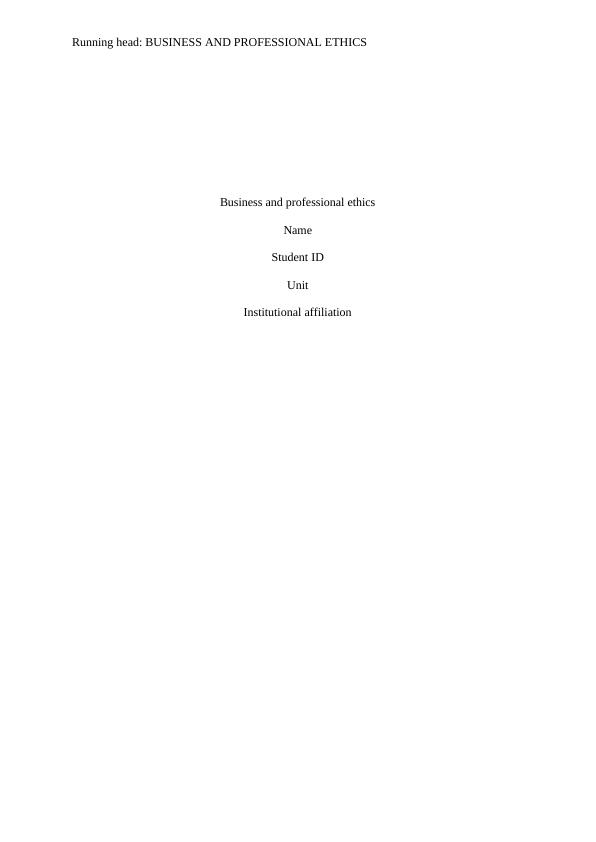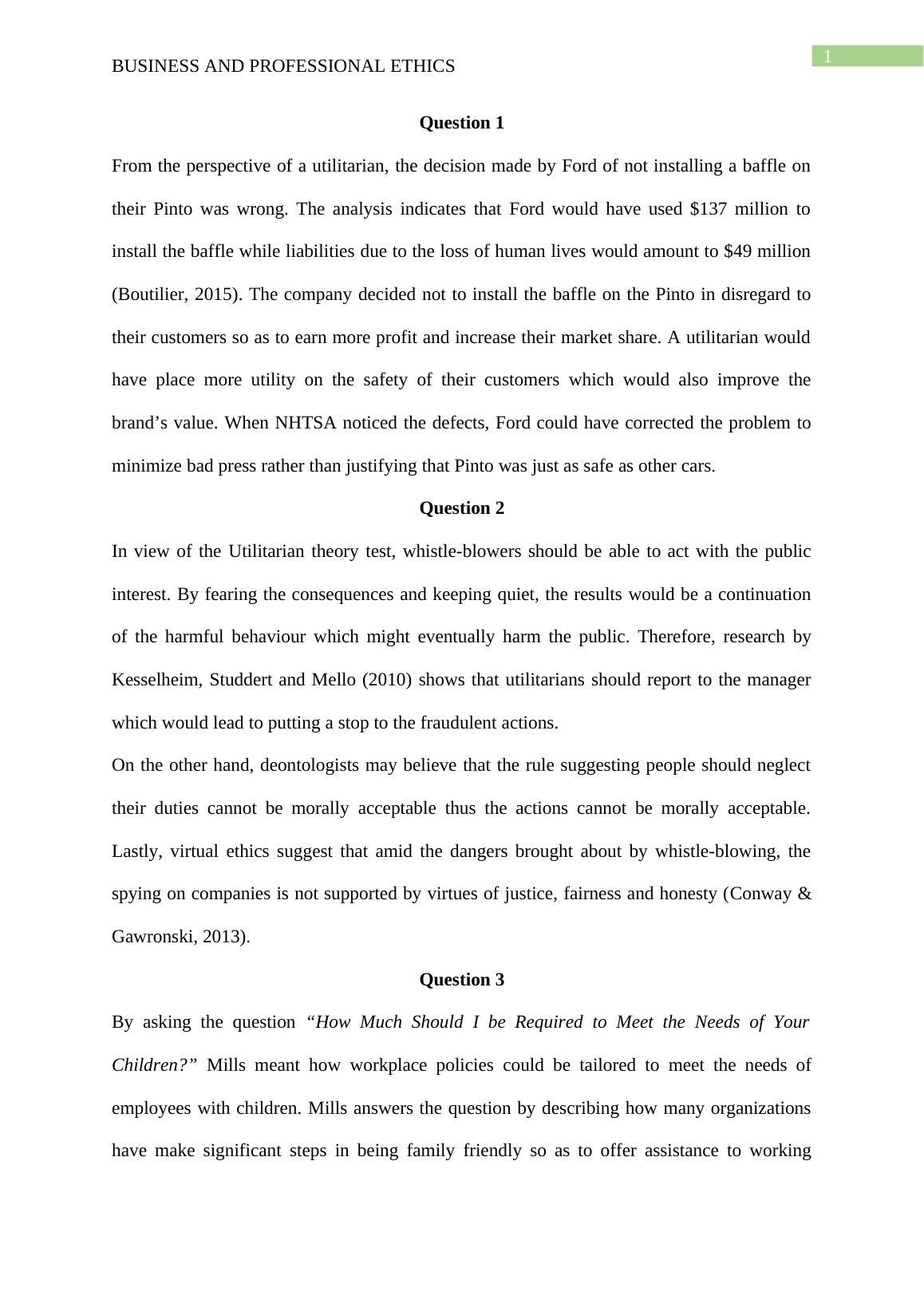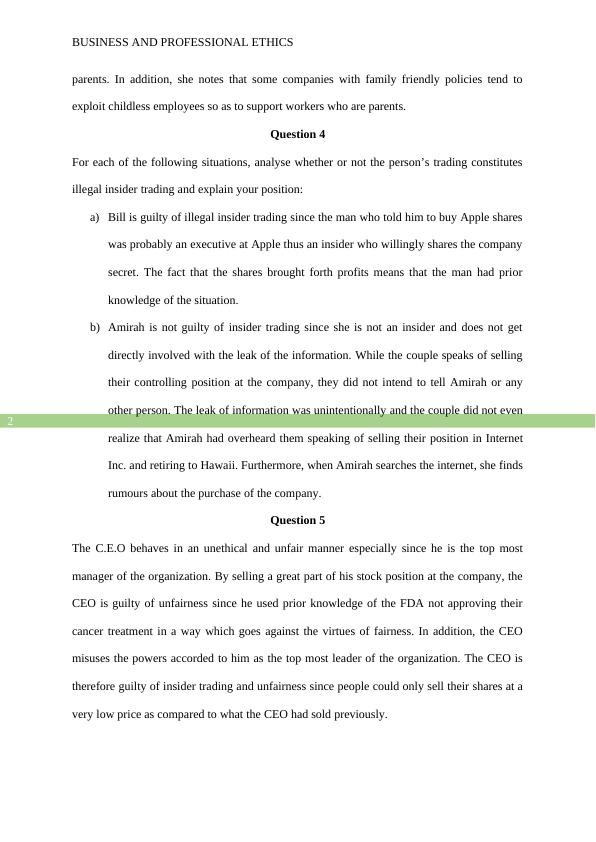Business and Professional Ethics
Short answer questions related to employee rights, whistle-blowing, and insider trading in the context of business ethics.
6 Pages1378 Words38 Views
Added on 2023-01-10
About This Document
This document discusses various ethical scenarios and perspectives in business and professional settings. It covers topics such as utilitarianism, whistle-blowing, insider trading, and corporate culture.
Business and Professional Ethics
Short answer questions related to employee rights, whistle-blowing, and insider trading in the context of business ethics.
Added on 2023-01-10
ShareRelated Documents
End of preview
Want to access all the pages? Upload your documents or become a member.



